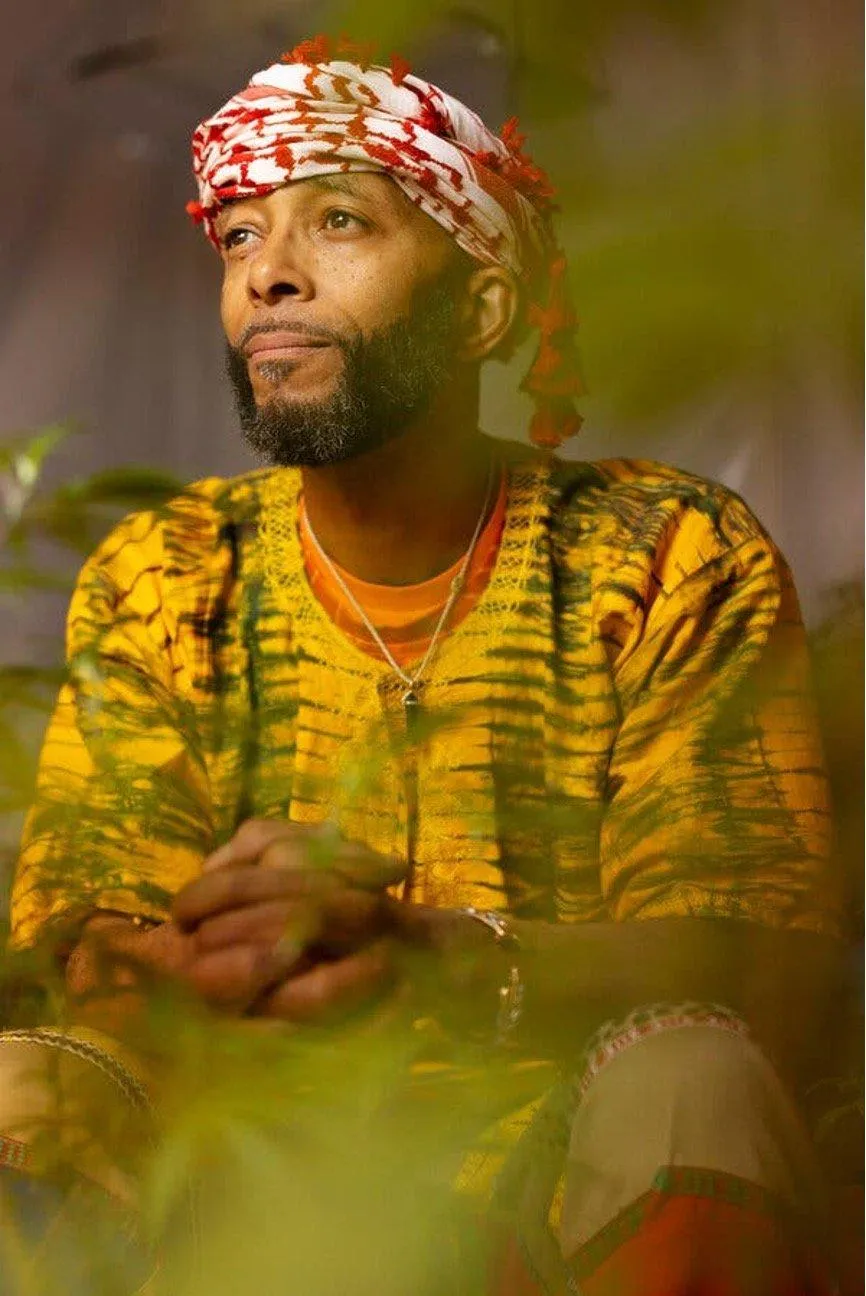PUSHING LEGACY CANNABIS FORWARD
Specializing in Cannabis Cultivation & Curation of our Community’s “SAFE SPACE;” and fierce ADVOCATE for our COALITION’s mission to bring COLLABORATION, SOLIDARITY, & JUSTICE in pursuit of our members’ goals and objectives.
A native of Harlem NY, but LONG TIME resident of Rochester NY; Jeffrey relocated to the city of ROCHESTER in pursuit of opportunities in Real Estate and has acquired and renovated countless properties in this tenure. He always leaves the areas and assets in which he invests, in improved and rejuvenated states; raising the value & ascetic of the communities where his properties are located.
Over a decade ago, Jeffrey dedicated his life and work to the unifying and healing properties of cannabis & the culture the surrounds the plant. He has been staunchly dedicated to cannabis cultivation, community outreach/organization, & advocacy for members of the LEGACY & SOCIAL EQUITY cannabis spheres.
Seeing the URGENT & IMPORTANT need for organized unity amongst the diverse members of our community, Jeffrey called to order the weekly “GROWERS MEETING” bringing reluctant and clandestine members of our community out of the shadows. These weekly meetings quickly evolved and transformed into what the “NY GREEN COALITION” is today.
Medford is a master carpenter and general contractor. In his youth he had a long successful tenure as a musician and performing artist. He was a collaborator & contemporary of many famous & successful singers, musicians, recording artist, & performers.

KEEP UP WITH JEFF AND THE FIGHT FOR SOCIAL EQUITY

Jeff on the New York Times
A 10-week state program prepares growers to meet compliance standards. But some participants are hoping for an inside track to securing a license.A 10-week state program prepares growers to meet compliance standards. But some participants are hoping for an inside track to securing a license.
A 10-week state program prepares growers to meet compliance standards. But some participants are hoping for an inside track to securing a license.
Jeffrey Medford, like some other legacy cannabis growers in New York, has signed up for a new compliance training course started by the state in hopes that it can help him get a license to join the legal market.
By Wesley Parnell
March 25, 2023
ROCHESTER, N.Y. — Standing in a warehouse outside downtown Rochester, Jeffrey Medford watered his cannabis crop under industrial lights. He’s among the many growers who’ve transformed the city’s network of defunct factories into sophisticated indoor farms.
Mr. Medford, 58, who has grown cannabis for nearly a decade after a career as a carpenter, would typically be hypervigilant for any slip up that would alert the police to his presence. An outsized electricity bill, for example, could give him away. But since January, Mr. Medford has spoken openly about his operation to a packed online classroom as part of a business mentorship program.
In January, New York State regulators launched the Cannabis Compliance Training & Mentorship Program. The goal is to give legacy operators — loosely defined as players in the illicit market before legalization took place in 2021 — the information and skills necessary to stay current with emerging rules. For the first time, growers in the legal market will face requirements such as product testing and environmental controls.
While many states that legalized cannabis are losing revenue to illicit markets, New York aims to bring underground growers into the sanctioned market. The challenge is convincing a thriving industry, long distrustful of law enforcement and government, to embrace new regulations.
So far, however, New York’s legalization effort has been slow and bumpy. And for legacy growers who signed up for the training program, it’s unclear if it will improve their chances of getting a license, leading to frustration for some.
“For a lot of us, this isn’t a hobby; we provide for our families with this plant,” said Mr. Medford, who added that legacy operators would likely remain underground if not ushered into the legal marketplace. “I’ll be but a blip on a radar. I’ll be in the woods, perfecting my craft, growing more cannabis than ever before,” he added.
The role of the program in the licensing process was still unclear because drafted regulations clarifying the question have yet to be approved, said a spokesman for the Office of Cannabis Management, the state agency that regulates the industry.
Even with the course, however, regulators worried that legacy operators, a group used to working without oversight, could fail to meet stringent regulations or find start-up capital.
“I think it’ll be really easy for this group in particular, who’ve been let down by government so many times, to struggle for a little bit to get this thing launched, and then just get frustrated and go back to the illicit market,” said Damian Fagon, chief equity officer at the O.C.M. “That does worry me, that they’re not fully appreciative yet of the scale of the challenge in front of them.”
State officials embarked on a series of informal conversations with legacy operators around the state in March of last year to encourage enrollment in the mentorship program. They honed in on the supply chain: growers and processors, who convert the plant into edibles and topical ointments, among other products. During the chats, state officials also started to gauge what approaches would quell fears about applying for the course.
Regulators asked legacy operators to submit applications with the promise that the documents would be deleted at the end of the 10-week program. Applicants were identified by numbers rather than their names to ensure anonymity.
Over 600 New Yorkers from across the state applied with 242 admitted into the course — 136 of them from the legacy market.
Traditional farmers and food processors seeking to enter the industry were also admitted to the program but in separate classes from legacy operators, given their know-how in growing and processing but unfamiliarity with compliance standards.
State authorities partnered with the State University of New York at Morrisville and Cornell University to build the mentorship program. The course cost about $75,000 with most of the money going to SUNY Morrisville for providing the computer servers to host the online course along with professors and course materials from their agricultural program. There was no cost for participants to enroll in the course.
Twice a week, seasoned growers tuned into hour-and-a-half-long classes to learn everything from tax structure to compliance requirements to incorporating cannabis operations. Each participant was paired with a mentor: a grower or processor who already holds a license. Mentors made themselves available to speak privately with class participants to answer any questions they might have about joining the industry.
Some participants were skeptical that the program would improve their chances of receiving a license down the road, recalling New York’s history of aggressive drug enforcement in the past.
“I was very nervous. I just had to take the risk and hope that the state had the right intentions,” said Ethan Solomkin, 31, who started a grow operation on Long Island in 2019. “I already didn’t trust them. I’m planning for this to not pan out. But if it does work out, I will gladly eat my words to tell you I was wrong.”
According to regulators, the course will not be repeated. Instead, regulators will take best practices from the class and hope to create similar programs. The final classroom session is scheduled for April.
Eleni Polinski, 23, a Brooklyn-based grower who placed first in last year’s Growers Cup, enrolled in the mentorship program. Using calculations provided in the course, she says launching a Brooklyn-based growing business will cost her more than $1 million. She recounted predatory lenders already approaching her with start-up cash in exchange for large stakes in her future company.
“I’m concerned where our seed money will come from,” she said. “Cannabis isn’t like other businesses where you can go to the bank and get a normal small-business loan.”
After the seventh week of the course, Mr. Medford said the program served as a startling reminder of how much he still had to learn about growing cannabis. He’s now thinking about enrolling full-time in SUNY’s agriculture program.
“I find myself in class taking screenshots of every presentation, telling myself, ‘I have to remember this,’” he said.
But for other growers, the classes weren’t enough. Because the state could not definitively tell legacy operators how the course would count toward the scores that applicants receive when applying for licenses, Mr. Solomkin said, he did not believe it would effectively transition illegal operators into the market.
He says there are many legacy growers willing to give up their illegal operations if New York could concretely promise them a place in the aboveboard industry. But to him, the program wasn’t that.
“As far as the mentorship program goes, hopefully it works out for me, but I’d be lying if I said I think it will,” said Mr. Solomkin, adding that he believes the program failed to convince many legacy growers to come out of hiding. “All they’ve done is strengthen the legacy market because they’ve messed up this program. They need to just make us legal.”
